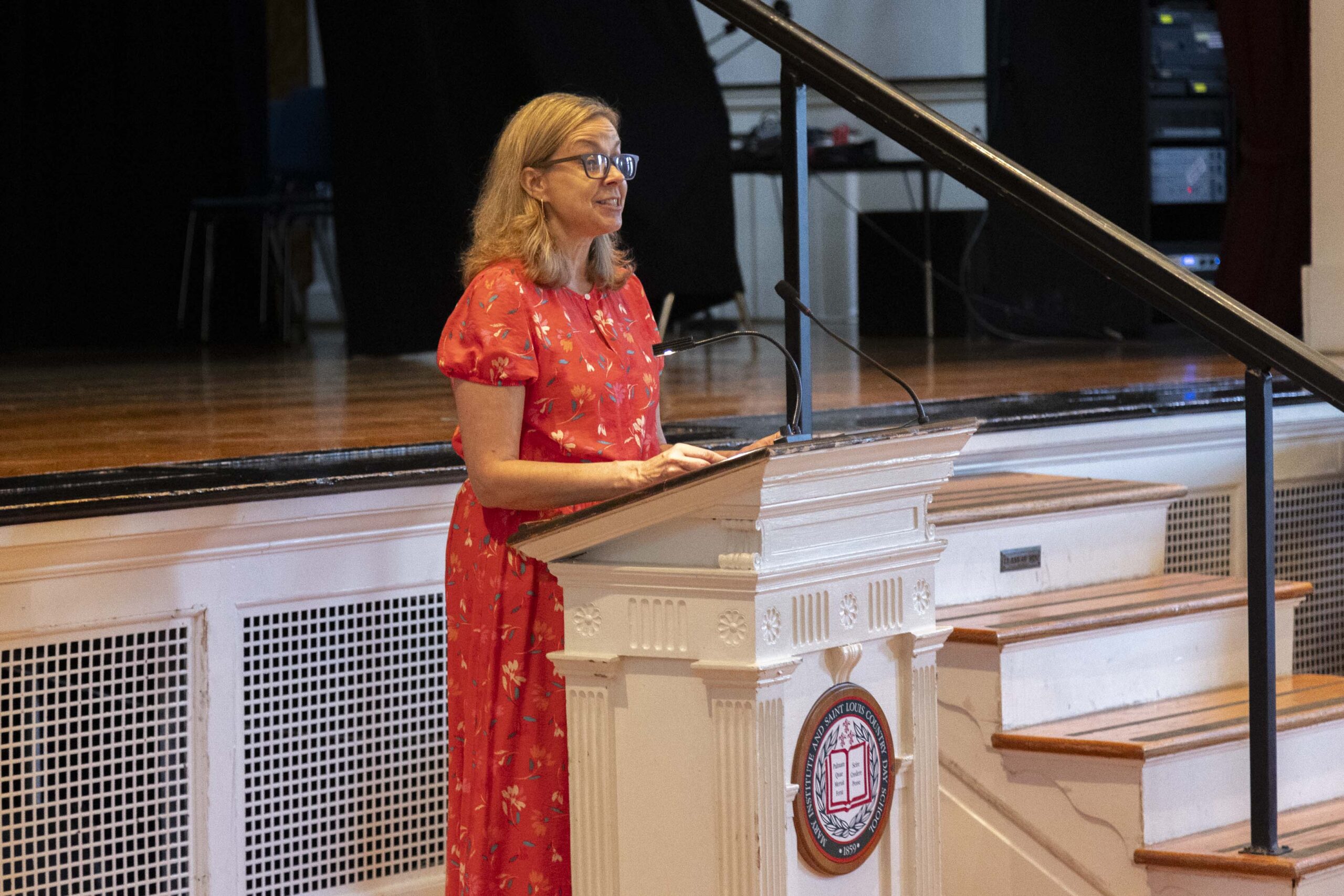Dear Middle School Students: Please Fail.
By Jen Schuckman, Head of Middle School
It may seem out of line to hear a middle school leader say that she hopes her students fail. Who could possibly trust someone who wishes this for their child? Well, hear me out. In my almost three decades of experience in middle school, I can say with great certainty that few things are more critical to one’s success than facing failure. I want our students to feel it and sit it in it and figure out how to overcome it so that their sweet preadolescent brains undergo the necessary neurological generative processes to prepare them for the big dance, i.e., Upper School.
As parents, we sometimes have quite the opposite mindset. We would never want our children to be let down in life. We want them to make the varsity team. We want them to have stable friendships. We want them to love learning and get A’s in all of their classes. But it is naive to think we can bubble-wrap them and push them through life without any scrapes or bumps. That is not how life works, and we certainly know this to be true about adulthood. We become cynical when the delirium of childhood wears down and we encounter the responsibilities and burdens of being a grown-up. We wish for the years to pass slowly and for our children’s days to provide copious joy and wonder. We know the end awaits them as they graduate and take on jobs and spouses and mortgages, and we can’t stop it. It has been said, “Prepare the child for the road, not the road for the child.” A few speed bumps and potholes along the way can safely begin the inevitable demystification as adolescence approaches.
Author Jonathan Haidt proposes similar thinking in his books The Anxious Generation and The Coddling of the American Mind: How Good Intentions and Bad Ideas Are Setting up a Generation for Failure. He shares: “You cannot teach antifragility directly, but you can give your children the gift of experience—the thousands of experiences they need to become resilient, autonomous adults. The gift begins with the recognition that kids need some unstructured, unsupervised time in order to learn how to judge risks for themselves and practice dealing with things like frustration, boredom, and interpersonal conflict. The most important thing they can do with that time is to play, especially in free play, outdoors, with other kids.” These readings push adults to give the space for trial and error as our children and students move through the “minor leagues” of middle school. By giving space, we are telling children that we believe in them.
When raising infants and toddlers, the milestone moments seem so obvious. We see them learn to roll over and sit up. We hear their adorable gurgles evolve into full sentences. We cheer and cry as they take those first steps and read those first words off the page. We wait patiently and supportively, knowing that they will reach those signposts when they are good and ready. So let’s not assume that just because they can read and write and run as middle schoolers, that every other part of their wiring is fully coded and ready to go. Far from it. The formative evolution of 10- to 14-year-olds should astound you in every way. They are going from egocentric to other-centered. They are shaping their perspective as the world around them comes into focus. They are figuring out empathy and freedom and responsibility. And yet, sometimes they just need hot chocolate and a hug.
You might witness them pivoting between child and adult within minutes, crying over a broken favorite toy one moment and then contributing their insights to a political debate at the dinner table the next. This is the invisible wiring happening right in front of you. Pay attention to the shape shifting. This will not be linear or predictable in any way. Meet them where they are. Let them sit in the muck, let them process the fear, let them problem-solve their recovery. But whatever you do, don’t give them the answer key. That is the equivalent of cutting a wire. You will short-circuit their development and deprive them of some of the most significant lessons and skill-building necessary for adulthood.
If we consider the highest level of success, be it Olympic athletes, Nobel Prize-winning scientists, or Michelin-star chefs, all of them will reference the early stages of their careers as the most crucial. NBA star Steph Curry notes a defining moment in middle school when he missed free throws and lost the game for his team in an AAU championship. I think it is pretty clear from his stats that he took that lesson to heart, as he is now one of the best shooters in NBA history. Or how about the race to the moon in the 1960s and the thousands of iterations it took the engineers and astronauts to finally set foot on the lunar surface? How many Apollo missions failed before touchdown? No one called it quits. No one accepted defeat. Isn’t that the mindset we want our children to have as they inherit our world?
So, yes. I hope they hit the wall. I hope they feel disappointment and discontent. I hope they doubt their abilities. I hope they have to pick themselves back up. No, I am not cynical or defeatist. I am our students’ greatest cheerleader who will never doubt them or give up on them because I know that they are on their way. I see the neurons firing. I see the productive struggle. And when they stand tall and dust the dirt off their knees, I smile, knowing that they made it. What an extraordinary privilege it is to have a front-row seat to watch it all unfold.
